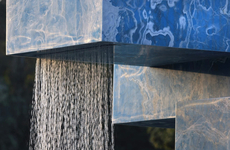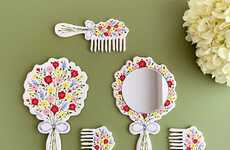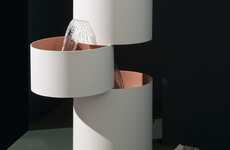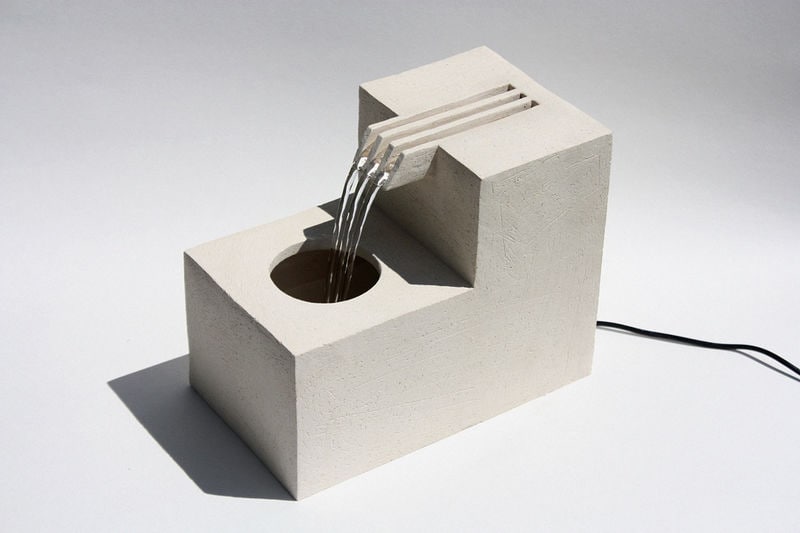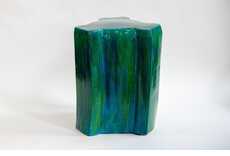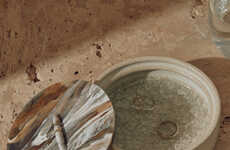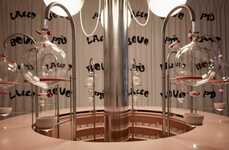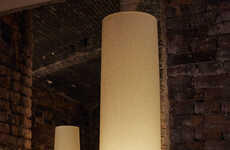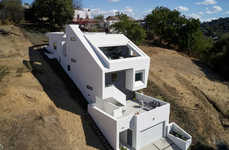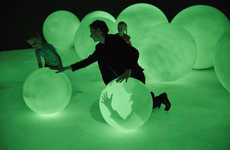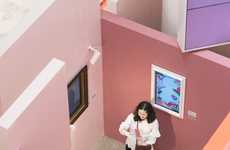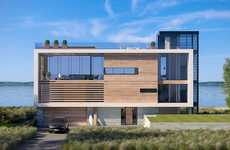
Ceramicist Lily Clark Designed the Architectural Comb Fountain
Amy Duong — July 17, 2018 — Art & Design
References: lily-clark & design-milk
Lily Clark is a ceramicist based in Los Angeles and her last project is the captivating Comb Fountain crafted from her admiration of water, ceramics and hydraulic engineering. The architectural fountain pays homage to famous architect Rudolf Schindler and his unique style of construction. The piece is comprised of a rectilinear profile that is crafted using slipcasting techniques followed by hand-built and extruded components with 3D-printed dies.
The result is a minimalistic design that recalls structures created to control the flow of water such as headwalls and buttresses. Schindler's work, specifically his iconic Frame Houses, were built using a four-foot grid and his influence translates through Clark's work through her implementation of cascading comb elements surrounding the moving water.
The result is a minimalistic design that recalls structures created to control the flow of water such as headwalls and buttresses. Schindler's work, specifically his iconic Frame Houses, were built using a four-foot grid and his influence translates through Clark's work through her implementation of cascading comb elements surrounding the moving water.
Trend Themes
1. Hydraulic Engineering-inspired Art - Opportunities for disruptive innovation include the development of innovative materials and techniques for creating art that incorporates principles of hydraulic engineering.
2. Minimalistic Architectural Design - Disruptive innovation possibilities lie in the exploration of minimalistic architectural design principles in various industries to create functional and aesthetically pleasing products.
3. Combination of Traditional Craftsmanship and Technology - Innovation opportunities can be found in the fusion of traditional craftsmanship with modern technologies, as seen in Lily Clark's use of slipcasting techniques and 3D-printed dies to create the Comb Fountain.
Industry Implications
1. Art and Sculpture - Disruptive innovation prospects exist in the art and sculpture industry by integrating concepts from hydraulic engineering and utilizing innovative materials and techniques.
2. Architecture and Construction - The field of architecture and construction can benefit from disruptive innovation by incorporating minimalistic design principles inspired by the work of architects like Rudolf Schindler.
3. Craftsmanship and Manufacturing - Opportunities for disruptive innovation can be explored in the realm of craftsmanship and manufacturing, by combining traditional techniques with advanced technologies like 3D printing.
3
Score
Popularity
Activity
Freshness

